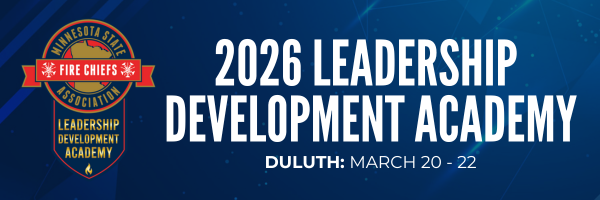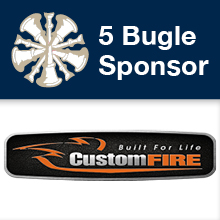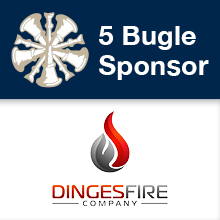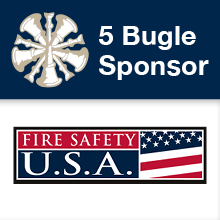|
2026 Duluth Leadership Development Academy
Attendees may register for one (1) 12-hour class, which will be held on Saturday and Sunday unless otherwise noted below. Accountability of Leadership: Crisis Management Inside Public Safety This presentation examines the essential connection between leadership accountability and effective crisis management within the public safety environment. This session defines key leadership pillars—Accountability, the ownership of actions and outcomes; Responsibility, the obligation to perform assigned duties with integrity; People, the foundation of every decision and the heart of every organization; Policy, the structure that guides consistent and fair operations; and Politics, the internal and external influences that shape leadership challenges. Through the utilization of real-world scenarios, participants will engage in practical analysis and discussion to explore how these five elements intersect during moments of internal crisis. The session equips leaders with strategies to apply these principles in realistic settings, promoting clarity, consistency, and trust throughout their organization. Instructor Bio Buddy to Boss Critical Thinking for Fire Ground Operations Each and everyday Emergency Services respond to numerous calls that require different approaches to best control the situation. Often, the decisions of controlling that situation happen within seconds. Some of these situations end up going longer than the “normal” call. This critical thinking session is designed to provide you a background and enhance your decision making on a scene both initially and long term incidents. Learn from case studies and lessons learned on the ICS City a 5 ft. x 32 ft. training city that you will be utilizing during the session. The session scenarios will start at a baseline level and grow in intensity and complexity. The ICS City allows for students to utilize the concepts learned during class and their “real world” experience and apply to the exercise that is unfolding in front of them “in the city”. The session will have training components and many “hands on” opportunities with the ICS City.
EMS Attack Crew: Leading and Preparing Our Firefighters to Succeed on Every Medical Call Medical calls are no longer the "other thing" we do. We are now considered the first line of defense for all kinds of medical emergencies and the evolution continues. EMS Attack Crew leads firefighters and fire officers through easy-to-adopt processes that make medical calls run more efficiently than ever before. With a combination of table-top discussions, classroom time and hands-on scenarios, EMS Attack Crew is a great experience that gives attendees a library of training perfect for bringing back to your own department and sharing with your entire team of responders! Fire Ground Management - First Arriving Officer Participants will learn the importance of conducting a thorough size up before committing limited resources. This course will develop company officers’ incident scene supervisory and management capabilities in structural fire operations. Key content includes discussion and scenario based practice on controlling and implementing the activities that need to be done to successfully deal with personnel performing the following operations; rescue and ventilation, confinement and extinguishment, water supply, exposures, offensive and defensive operations, salvage, overhaul and support. This course takes a practical, common sense approach to fighting fires in single-family homes, multi-family apartment buildings, light industrial and commercial structures. It takes into account the realities of today's fire service – that is, most fire departments in this country are, understaffed, less experienced and involved in more EMS than ever before. If your incidents seem to run themselves and you’re not in control then this course is for you. Inspire the Leader Within Leadership effectiveness is the ability to influence others through a balance of leading, managing and coaching. Officers who share vision, coordinate efforts, and empower others bring people together and discover solutions that draw upon the talents of all the firefighters. Great leaders embrace new approaches and communicate in ways that engage others. The most effective officers understand the importance of leading authentically and are dedicated to developing themselves. It is a commitment to create a culture of excellence that results in each officer inspired to contribute their very best toward a common goal. Learning Objectives
Modernizing Fire Incident Reporting: NERIS Functionality and Community Risk Reduction Development The National Emergency Response Information System (NERIS) is here. New modules, new fields, and new terms. A new way for the fire service to approach post-incident documentation. In this session, the Minnesota State Fire Marshal division will continue to build on the NERIS Core Training classes by discussing the first months of NERIS, the continued rollout of additional NERIS modules, and what your fire department should know. Learn about new features within Elite, get hands on experience with NERIS and new features, and utilize scenarios to ensure you gain a better understanding of how the incident can be captured in the post-incident report. Did you know that one of the many benefits of post-incident documentation is taking the data and utilizing it to help build your own community risk reduction plan? The next part of this session will address Community Risk Reduction at a state level and provide a preview of the Statewide Community Risk Reduction Plan. We will discuss how NFPA 1300 was used to start the planning process, challenges during this process, and provide interactive, hands-on time within the session for participants to begin to develop their own local Community Risk Reduction Plan. This session is intended for all fire service leaders, administrative staff, and life safety public educators regardless of what specific RMS a given fire department may use. Please plan to bring your laptop or tablet to this session. G-131 - Wildland Training (FFT1) for Structural Firefighters (Class held all day on Saturday; no class on Sunday)
Joe Meyer The NWCG G-131 course is a training program for experienced wildland firefighters, designed to qualify them as a Firefighter Type 1 (FFT1) or Incident Commander Type 5 (ICT5). The course builds on basic skills by focusing on operational leadership, advanced communication, tactical decision-making, and fireline references, preparing students for increased responsibilities and leadership on wildland fire incidents. Prerequisites include having completed the S-130/S-190/L-180 courses and substantial wildland fire experience. Key course components and topics
Prerequisites
|







